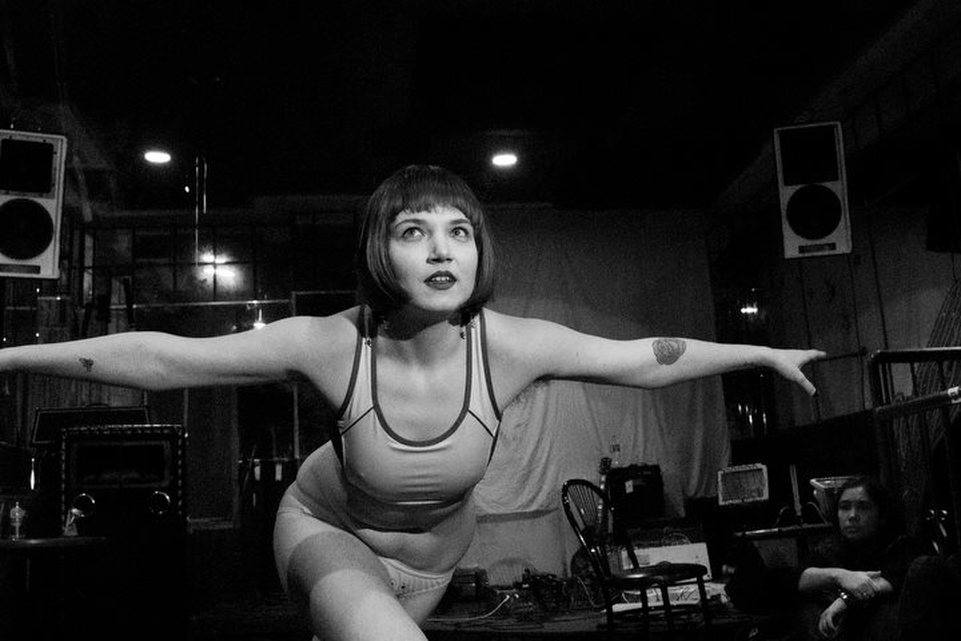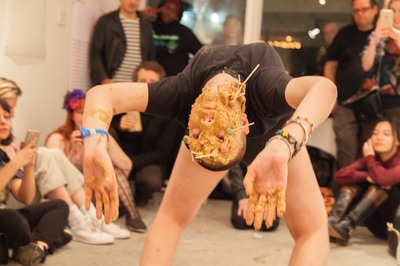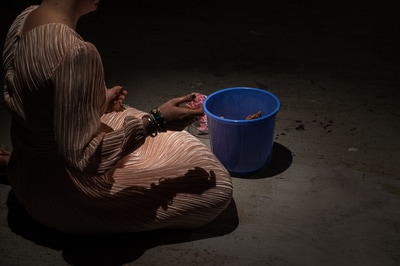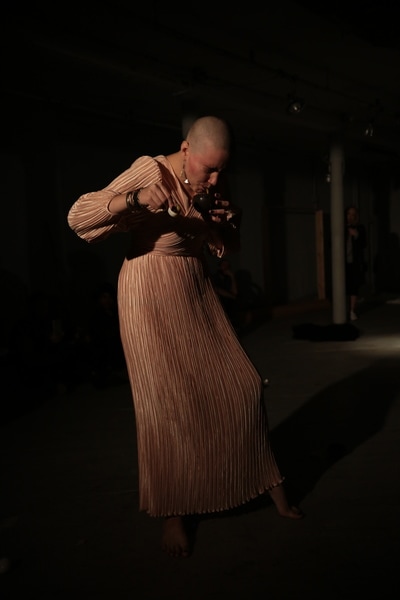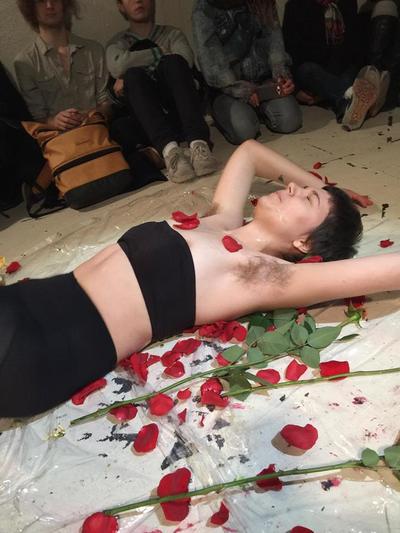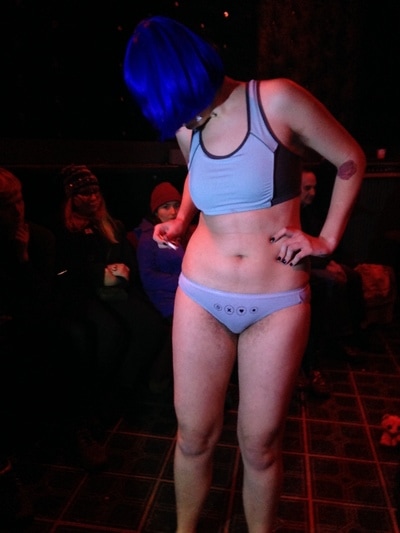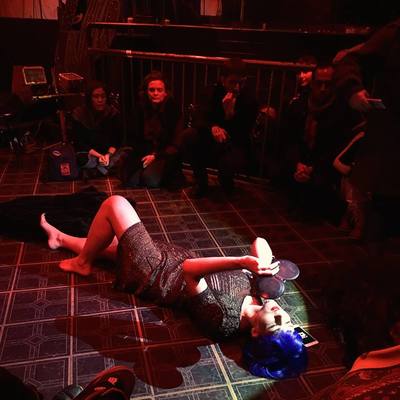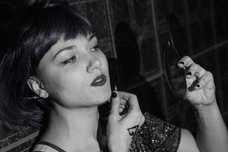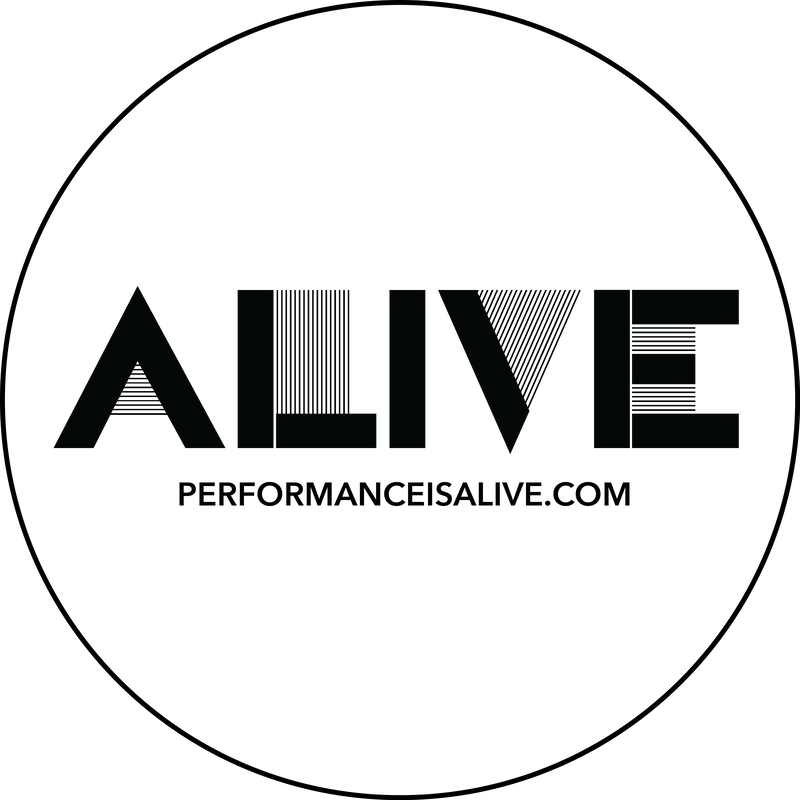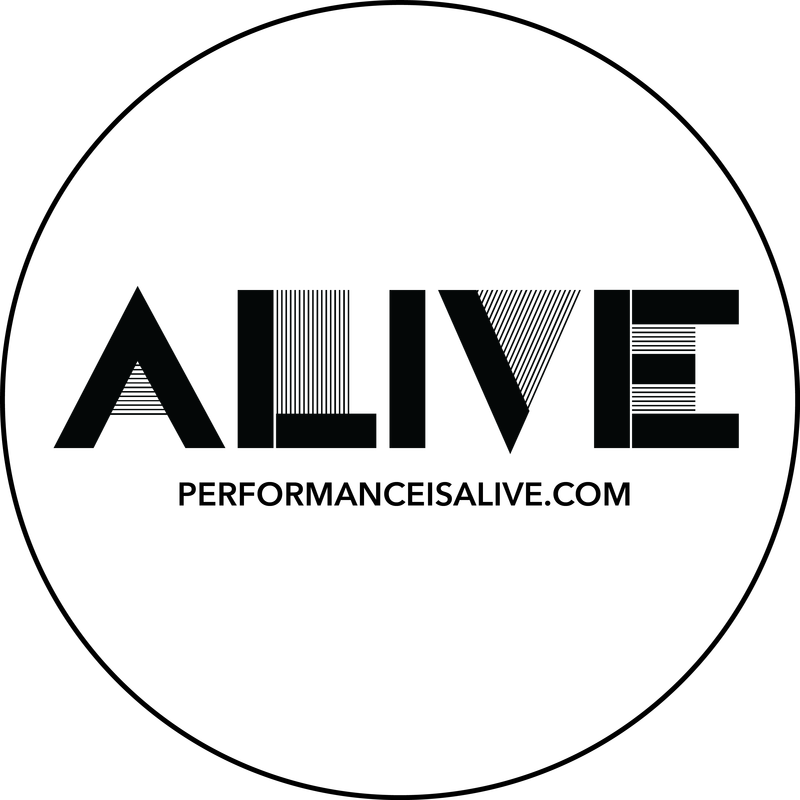|
You may have noticed a new name for the Performance Is Alive correspondence team when we published "ARTISTS IN HOPE: A SOFT POLITICAL DISSENT" by Polina Riabova. I first met Riabova at one of Fritz Donnelly's infamous performance events at BIZARRE Bushwick. We spoke casually about the Brooklyn performance community as live performers slung chocolate sauce all over themselves, the venue and anyone in their path (you know, normal performance stuff.) Months later we picked up our conversation at Grace Exhibition Space where Riabova expressed an interest in writing about performance. Intrigued by her poetic approach and fresh immersion into performance art, I found Riabova to be an apt addition to the site. In our interview, Riabova explains her relationship to writing, immigration and highlights a few standout performance pieces. - Quinn Dukes QUINN DUKES: Your bio mentions that you are Russian born. How long have you lived in NYC? POLINA RIABOVA: I’ve lived in NYC three years but I’ve been in the U.S. sixteen - my family moved to New Hampshire when I was 8, and I came to New York January of 2014. QD: Does your nationality influence your work both as an artist and writer? PR: I don’t take conscious note of it very often but because the experience I had with immigrating to America is such a huge part of who I am, it definitely does. I imagine anyone with intimate knowledge of more than one culture at a young age is familiar with this feeling of semi-belonging, having your foot equally entrenched in both worlds, with what you know about one world shaping your understanding of the other. The first few years of living in the U.S. I was very Russian in my understanding and approach to life and eventually that flipped - now I’m much more of an American (aside from just having my citizenship) but there are emotional pockets I stumble onto sometimes where I’m like, “What’s this?” and it’s the Russian part of me reminding me it never left. As far as performance art and writing goes because the duality I’m privy to is part of the way I look at the world, it’s there in the work more so than any influence of aesthetic. QD: What led you to write poetry and how long have you been writing? PR: I found out I could write in 3rd grade because of a teacher who put curricular emphasis on creative writing, at which point I began experimenting with short stories. I wanted to be a poet since my freshman year of high school. My dad told me around that time that poets generally lead difficult, unhappy lives and something about the supposed tragedy of that appealed to me. As a teenager I was very shy and anxious so I would write poems instead of making friends at school, as an adult I wrote poetry by way of procrastinating writing stories. I’ve always found the focus and discipline for long form writing much more difficult to access so whenever I sat down to write an essay or a story I’d come out with a poem instead. For years I didn’t realize I was a poet, I just thought I was a writer who didn’t write. QD: Do you see a connection between your writing and your performance practice? PR: My approach to both is very narcissistic - it’s always about me. If what I do or write falls within a larger social commentary that’s usually because something in my life touches upon that theme as well, and rarely my starting point. I use both mediums to explore my internal landscape and confront personal issues. In terms of process there is a similarity in the sense that both writing and performance come instinctively to me. I didn’t have to struggle to “get” either. Another similarity is that I write poetry to find out what I’m thinking and feeling and why I may be thinking or feeling those things. I often don’t know until the poem is written. In a successful performance there is a transformation, change or release that occurs during the performance, and what that feeling/shift will be you can’t predict until you’re in the moment and it’s happening. So poetry and performance to me are equally as therapeutic and immediate. QD: Performance is relatively new to you, is that correct? PR: I began performing regularly at the end of summer 2016. QD: What led you in/to it? PR: Performance Anxiety, a monthly event curated by Ventiko was my formal introduction to performance art. I had no idea what performance art was when I showed up to the event and the friend I came there with also didn’t know and kept saying to me, “You should get up and do something too” as we watched the performances. Luckily, I was too shy but I did approach Ventiko about participating in future events and she curated me into the following show. That was January 2015. I was so nervous I almost backed of doing it, and afterwards was very embarrassed because I felt it had gone so badly. But for months all I talked about was performance art and how the various stunts I’d done in the past before I knew what performance art was could be considered as such. Doing that performance was definitely a kind of baptism. I didn’t have the social smarts or experience necessary to navigate an art scene and pursue getting shows for myself at the time so it kind of fell off the radar for me until this past summer. QD: Have you seen any performances lately that surprised you or stood out? PR: I was really moved by Snežana Golubović’s performance at 2016’s December rendition of Performance Anxiety. It was straightforward both visually as well as in the concept, yet dynamic in a way that kept you naturally curious and engaged. It was the first performance I’d ever seen which I felt resonated deeply with what I was going through at the time, or I was able to project onto it enough for it to resonate, which essentially is the same thing. I loved Emily Oliveira’s performance at Grace Space for From the Belly of The Beast in February. It was about standing up to our culture’s sexualization and devaluation of the Latino body. It was really powerful and direct, and I loved seeing the audience’s response. QD: Who are a few critics, poets or writers that inspire you? PR: Contemporary critics - I make it a point to keep tabs on writing by Safy-Hallan Farah, Sarah Hagi and Alana Massey. I don’t know if they’d describe themselves as ‘critics’ but because a lot of what they write about, respectively, are various aspects of our culture I feel like the label applies. I particularly love Alana’s willingness to candidly discuss topics of personal strife and vulnerability that I feel many writers tiptoe around or avoid altogether, as well as her down-to-earth approach regarding these things. The two poets who have influenced me the most are Sylvia Plath and Adrienne Rich. Adrienne Rich was my introduction to art as feminist agency and resistance and I was obsessed with Plath’s story as a teenager. The steely, impenetrable nature of her poems made an impact. I’m currently reading and being saved by bell hooks. QD: Do you have any upcoming shows? PR: Yes! I am participating in the next installment of Hector Canonge’s LiVEART.US series at the Queens Museum on April 8th, 2 - 5 pm. POLINA RIABOVA PERFORMANCE IMAGES |
| ABOUT PERFORMANCE IS ALIVE CORRESPONDENT, POLINA RIABOVA // Polina Riabova is a Russian-born bilingual poet and writer and co-founder of an independent cooperative record label based in Brooklyn, Borrowed Birds Records. In her performance work she explores the intersection between public and private life and the influence it exerts on our understanding of ourselves and others as well as the complexity of interpersonal relationships and themes of vulnerability using a mix of found objects, visuals and sound. |
Leave a Reply.
CONTRIBUTORS
Ian Deleón
Quinn Dukes
Alexandra Hammond
Luke Mannarino
Polina Riabova
Sarah G. Sharp
Alex Sullivan
Archives
July 2023
August 2022
November 2021
October 2021
September 2021
May 2021
March 2021
January 2021
December 2020
November 2020
September 2020
April 2020
January 2020
December 2019
November 2019
October 2019
September 2019
August 2019
July 2019
June 2019
April 2019
March 2019
February 2019
December 2018
November 2018
October 2018
September 2018
August 2018
July 2018
June 2018
May 2018
April 2018
March 2018
February 2018
January 2018
November 2017
October 2017
September 2017
July 2017
June 2017
May 2017
April 2017
March 2017
February 2017
January 2017
November 2016
September 2016
July 2016
June 2016
May 2016
April 2016
March 2016
February 2016
January 2016
December 2015
November 2015
October 2015
September 2015
August 2015
July 2015
June 2015
May 2015
April 2015
March 2015
February 2015
January 2015
December 2014
November 2014
